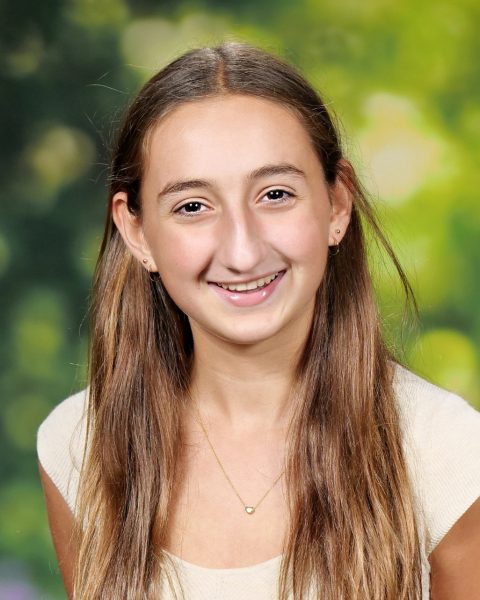While most teachers take lunch as an opportunity to take a break from teaching, Dan Rosenthal, the Evonne and Elliot Schnitzer Family Jewish History Department Chair, prefers to teach a subject that CESJDS doesn’t offer.
Every Tuesday during Lunch, room 314 is filled with Yiddish jokes and phrases. Students and faculty gather together to learn a little bit of Yiddish and connect back to their roots.
When Rosenthal first came to JDS, he felt that the school was lacking a key component of Jewish education: Yiddish. Rosenthal first started studying Yiddish as an undergraduate at Johns Hopkins University. He continued learning Yiddish in his doctoral work and took Yiddish courses in graduate school.
Many JDS students are of Ashkenazi descent, and all of those families spoke Yiddish at one point in their history. Prior to World War II, the majority of Ashkenazi Jews spoke Yiddish as their primary language and it was a key part of Jewish identity and history according to Rosenthal.
“[Yiddish] was really becoming a way of Jews to express themselves and to develop a unique culture that was their own,” Rosenthal said.
Rosenthal created the club in an effort to shed light on the aspects of Jewish identity that Yiddish provided.
“Yiddish really represents a Jewish society that no longer exists. I feel very strongly that we should try to connect with that past as much as possible,” Rosenthal said.
Every week, the club meetings start off with a Jewish culture discussion that they call kibitzing, or talking. These conversations range from talking about different variations of Yiddish, to types of kosher food, and different Jewish celebrations. They then learn basic Yiddish words and phrases through an online textbook. For example, students might learn how to introduce themselves, or look at Hebrew phrases that stem from Yiddish.
“Yiddish club is pretty unique in that it’s a bit of a class held at lunch and we have both members of faculty and students who take part in it,” Rosenthal said.
Junior Avi Friedrich joined the club because he hadn’t had the opportunity to learn Yiddish since his zeiti (grandfather) passed away. The Yiddish club provided just the opportunity Friedrich was looking for to connect to his heritage. In addition to learning Yiddish, Friedrich also appreciates the warm atmosphere of the club.
“[Yiddish club is a] warm academic setting because you feel like you’re in a home in a way,” Friedrich said. “Yiddish is the language you speak with your grandparents, so to speak with a teacher that you have in other classes can really change the atmosphere of your learning there.”
Junior Will Zimmet joined the club to understand the Yiddish phrases his mother uses around the house and likes having a fun club while still learning a new language. Zimmet joined the club without having much prior experience in Yiddish, similar to many of the other club members.
“You don’t have to know anything about it [Yiddish],” Zimmet said. “You can just come to pick up a few words and phrases and really just the alphabet if you want to.”
One meeting that club members especially enjoyed was their lesson on traditional Yiddish curse words; each club member was provided with a packet with Yiddish curses and translations. They learned the context of each of each curse and when to use them correctly.
Yiddish has more relevance in the Jewish world than most people realize. For the first four decades of the State of Israel, most of the prime ministers’ first languages were Yiddish. When politicians such as Golda Meir, Levi Eshkol and David Ben-Gurion were talking to each other casually, they would do so in Yiddish.
“[Yiddish Club] is part of my Jewish identity. Because of the connection to Hebrew and that my family used to speak it, it gives me a sense of connection to my family’s roots.” Friedrich said.















